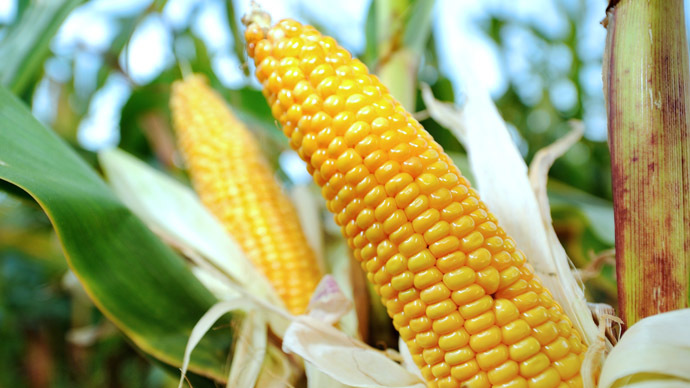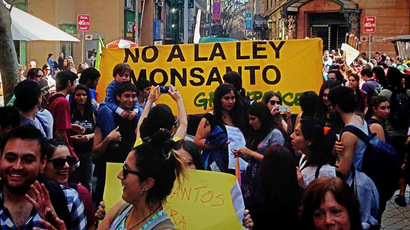Monsanto buys big data weather company to boost yields and profit

Agriculture giant Monsanto has announced acquisition of the Climate Corporation, a climate data research company, expecting that its info will help farmers maximize crop yields with fewer resources.
The $930 million cash purchase
is set to give the company an upper hand in the quickly expanding
field of scientific weather data, something that would put vast
amounts of climate information at farmers’ fingertips.
Monsanto said in a press release that the Climate Corporation “has a core set of support tools to benefit farmers. These include products that help them boost yields on existing farmland and better manage risks that occur throughout a crop season.”
The company added that the merger of crops with big data presented a possible $20-billion profit increase across the entire industry.
Monsanto’s chairman and CEO Hugh Grant said that “the Climate Corporation is focused on unlocking new value for the farm through data science… everyone benefits when farmers are able to produce more with fewer resources.”
Grant’s counterpart, David Friedberg of The Climate Corporation said that farmers today are challenged to make key decisions for their farms “in the face of increasingly volatile weather conditions.”
“Because of this we believe there is a real opportunity and value in working with farmers to manage the risks that affect them every year,” Friedberg added.
What makes Climate Corporation special is its array of tools for predicting extremely local events with high precision. Those tools, when incorporated with Monsanto’s software, are expected to greatly improve farmers’ work with field maps, soil data and seeds. Being able to use such software on the move gives farmers an added benefit.
Farmers will be able to access FieldScripts – Monsanto’s satellite-based science software - from their mobile devices while sitting in their tractors. Data received from Monsanto then automatically installs the most favorable settings for planting.
At the moment, the trial version of the software is being tested by around 160 US farmers across 40,000 acres of land, according to the Financial Times.

Other companies aside from Monsanto are also joining the ranks of growers with hi-tech toys. Rival DuPont Pioneer, for example, also has an online hub giving famers instant access to soil, weather and other information – called Field 360. It launched this summer.
And the marriage to big data could be a timely one for Monsanto, as the company has just passed its historically weakest quarter, and done so with a larger loss than forecast. In the three quarters preceding August, the company lost $249 million – exactly 20 million more than the same time last year.
While being an industry leader, Monsanto has been the subject of a great number of lawsuits from farmers and social discontent revolving around its development of genetically-modified seeds, as well as policies that take away from farmers’ pockets.
Jeffrey M. Smith, a GMO researcher from the Institute for Responsible Technology in an interview with RT accused the company of trying to take full control of the world’s seed supply to bolster profits, while hiding the effects of GMO on the ecosystem and human health.
“The world’s experts at feeding the world and eradicating poverty actually have the report, called “I-Stat” sponsored by the UN and the World Health Organization – and it concludes that GMOs in their current form have nothing to offer in feeding the world or eradicating poverty. There has been a promise to get people to try and promote the technology, accept the technology, but it doesn’t in fact even increase average yield, it reduces yield on average, according to independent science,” Smith explained.
In March of this year, the US House of Representatives quietly passed a last-minute addition to the Agricultural Appropriations Bill for 2013 - including a provision protecting genetically modified seeds from litigation in the face of health risks.
However, food safety advocates rejoiced a week ago after the controversial provision was removed from the Senate version of the bill.














